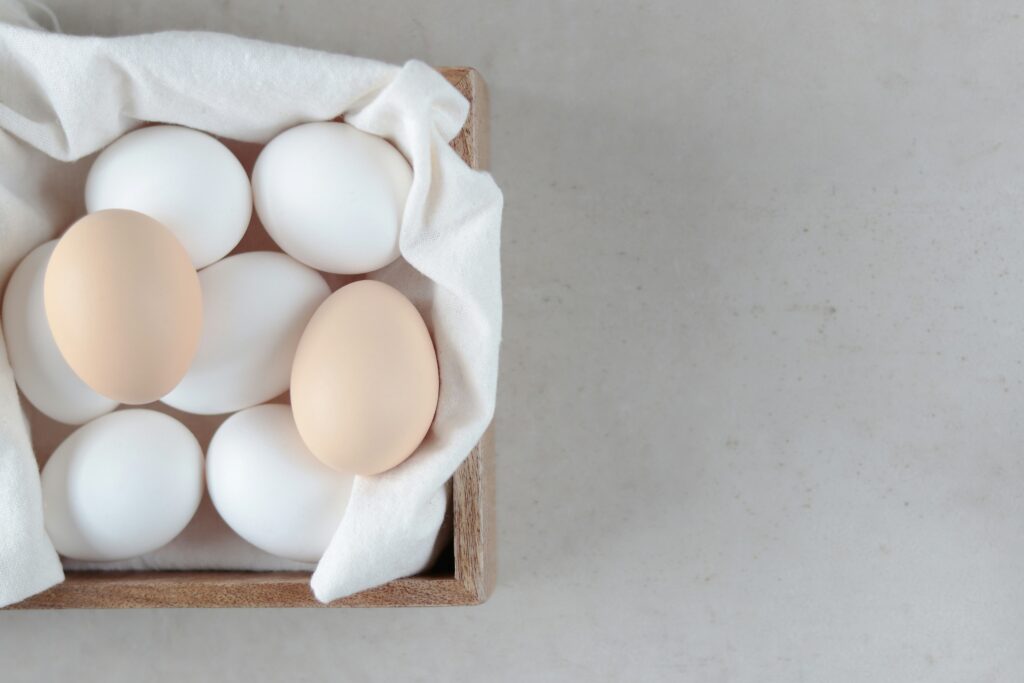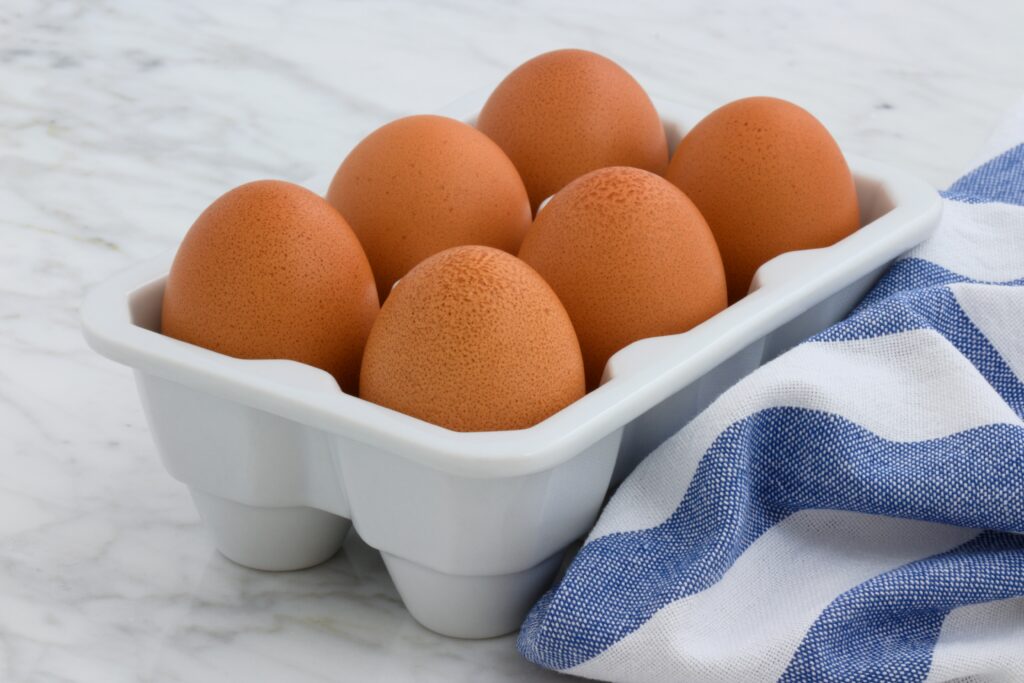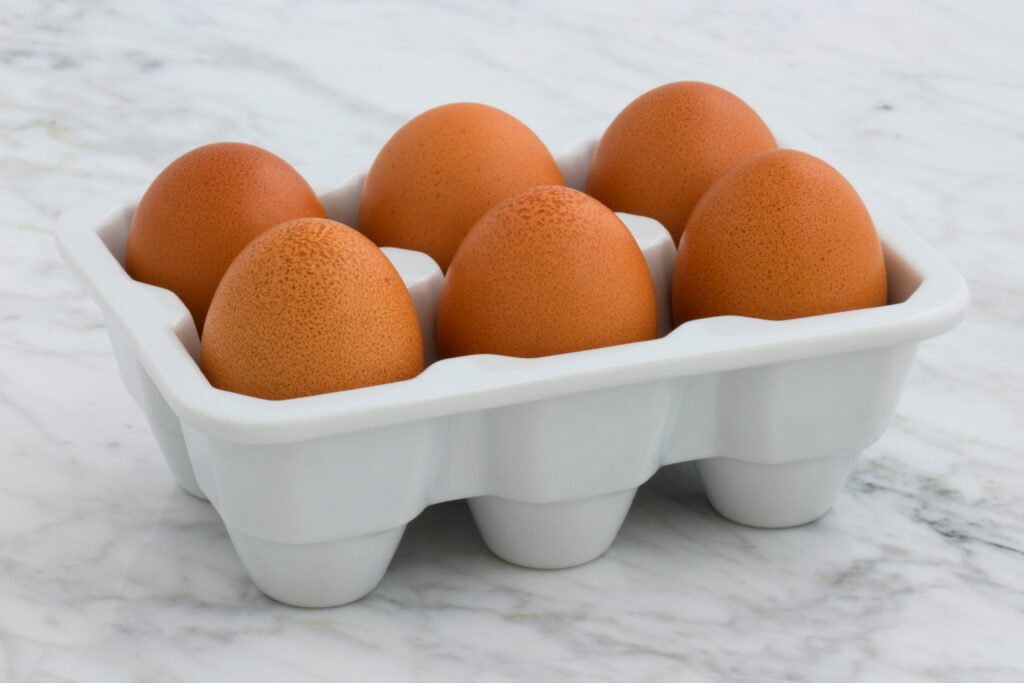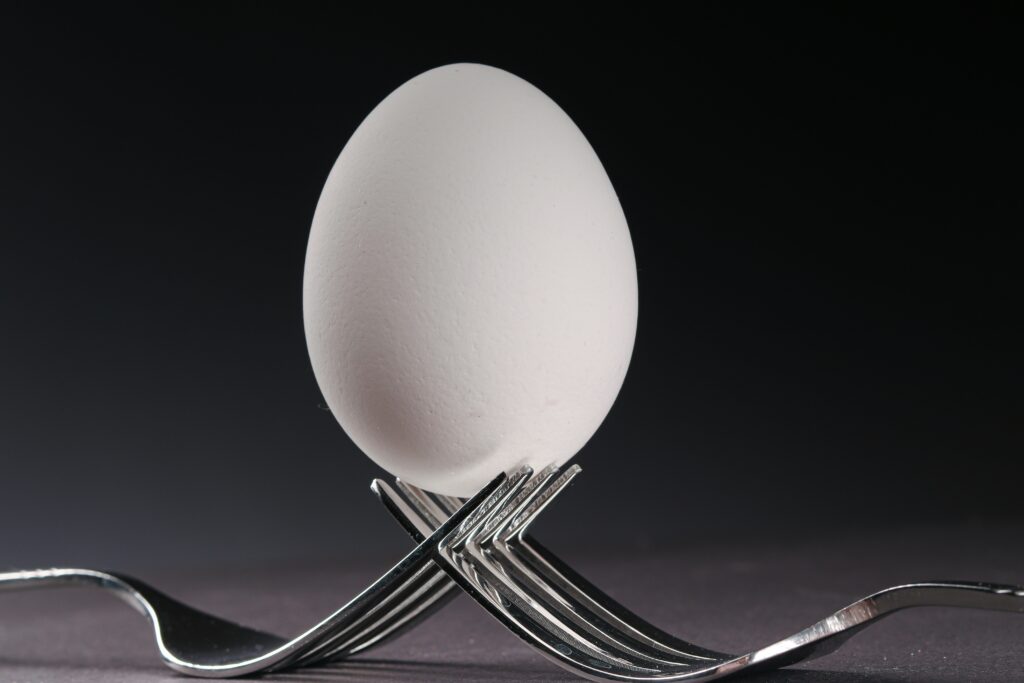Introduction
Ever wondered, “How long can fresh eggs sit out?” Whether you’re a seasoned home cook or a backyard chicken keeper, knowing the shelf life of eggs outside the fridge is essential. Eggs are nutrient-dense but also prone to bacterial contamination if mishandled. This guide reveals the surprising truths about egg safety, spoilage signs, and international storage differences.

Photo by Olga Petnyunene on Unsplash
Why Egg Storage Matters
Understanding Egg Composition
Eggs may look simple, but they have a built-in defense mechanism called the cuticle or bloom—a natural coating that seals pores and prevents bacteria like Salmonella from entering.
However, once the bloom is washed off (as done with store-bought eggs in the U.S.), eggs become highly perishable and require refrigeration.
Bacteria Risks in Improper Storage
- Salmonella enteritidis is the primary concern.
- Leaving eggs at room temperature beyond 2 hours significantly increases bacterial growth.
- Contaminated eggs can cause foodborne illness, especially in vulnerable populations.
USDA Guidelines on Egg Storage
What the Law Says in the U.S.
The USDA mandates all commercially sold eggs to be:
- Washed and sanitized
- Stored and transported at temperatures below 45°F (7°C)
- Labeled with an expiration date
How Long Can Fresh Eggs Sit Out at Room Temperature?
USDA recommends no more than 2 hours at room temperature (above 40°F). Beyond that, the risk of bacteria increases exponentially.
Global Perspectives: U.S. vs. Europe
Refrigeration Norms and Cultural Differences
- In the U.S., eggs are always refrigerated due to egg-washing regulations.
- In the EU, eggs are not washed and retain the natural protective bloom, allowing for safe room-temperature storage.
Why Europeans Don’t Refrigerate Eggs
- EU regulations prohibit washing to maintain the natural barrier.
- Eggs in Europe can safely sit out for up to 3 weeks if unwashed and stored in a cool, dry place.

Photo by Estudio Gourmet on Unsplash
Farm Fresh vs. Store-Bought Eggs
Protective Bloom Layer
Farm-fresh eggs straight from the chicken come with the bloom intact, allowing for longer shelf life at room temperature (up to 2–3 weeks).
How Washing Affects Egg Safety
- Washing removes the bloom.
- Washed eggs need refrigeration to prevent bacterial contamination.
- Store-bought eggs are washed, making them unsafe to leave out for long.
How Temperature Affects Egg Freshness
The 40°F Rule
Eggs should be stored below 40°F (4.4°C). This slows bacterial growth and maintains egg quality.
Heat and Humidity Impacts
- High heat accelerates spoilage.
- Humid environments increase mold growth and shell degradation.
How to Tell if an Egg Is Still Fresh
The Float Test
- Fill a bowl with water.
- Place the egg in it:
- Sinks and lays flat = fresh
- Sinks but stands upright = older, but usable
- Floats = bad, toss it
- Sinks and lays flat = fresh
Visual and Smell Indicators
- Crack the egg into a bowl:
- Cloudy whites = fresh
- Sulfur smell = bad
- Watery whites = old but possibly usable in baking
- Cloudy whites = fresh
Best Practices for Storing Fresh Eggs
Refrigerated vs. Non-Refrigerated Storage
| Egg Type | Room Temp (Max) | Refrigerated (Max) |
| Store-Bought | 2 hours | 3–5 weeks |
| Farm Fresh | 2–3 weeks | Up to 3 months |
Should You Wash Eggs Before Storing?
- No, unless you’re about to use them.
- Washing reduces shelf life and increases contamination risks.

Photo by Estudio Gourmet on Unsplash
Can You Leave Eggs Out Overnight?
Safe Window of Time
- For store-bought eggs: No. They must be refrigerated within 2 hours.
- For unwashed farm eggs: Yes, but only if the room stays under 70°F.
Effects on Taste and Texture
Eggs left out too long can become watery and affect baked goods and custards.
Using Eggs After Sitting Out
Cooking Temperatures That Kill Bacteria
- 160°F (71°C) is the safe internal temperature for eggs.
- Hard-boiled, scrambled, or baked dishes reach this easily.
When to Toss or Use Eggs in Baking Only
- Slightly questionable eggs can still be used for baked goods (high-heat environments).
- When in doubt, toss it out.
Egg Storage Hacks and Pro Tips
Using Egg Holders and Containers
- Store pointed end down to preserve freshness.
- Use covered containers to prevent absorption of odors.
Room Temperature Storage for Recipes
- Let eggs sit out for 20–30 minutes before baking for better emulsification and rise.
FAQs
1. Can eggs be stored without refrigeration?
Yes, if unwashed and freshly laid. Commercial eggs in the U.S. must be refrigerated.
2. How long do unwashed farm eggs last?
Up to 3 weeks at room temperature and 3 months in the fridge.
3. Can I put eggs back in the fridge after they’ve been out?
If out for less than 2 hours, yes. Otherwise, discard.
4. Are eggs still good if they float?
No. Floating eggs should be discarded immediately.
5. Do refrigerated eggs go bad if left out?
Yes, after 2 hours at room temp, bacteria may begin to grow.
6. Should I wash farm eggs before using?
No, unless you’re about to use them. Keep the bloom intact as long as possible.

Photo by Amir Rajabi on Unsplash
Conclusion
So, how long can fresh eggs sit out? It all depends on where you live, how the eggs are processed, and your storage methods. For most Americans, the 2-hour rule is crucial. For backyard poultry lovers, nature’s bloom provides extra time—but only if handled wisely.
